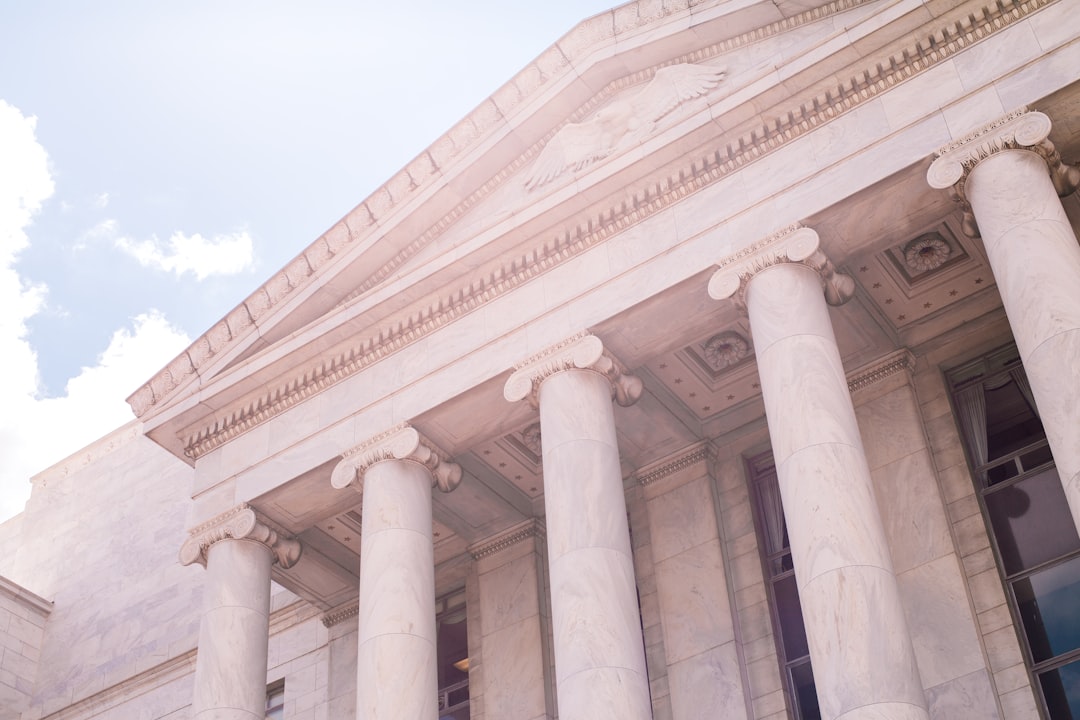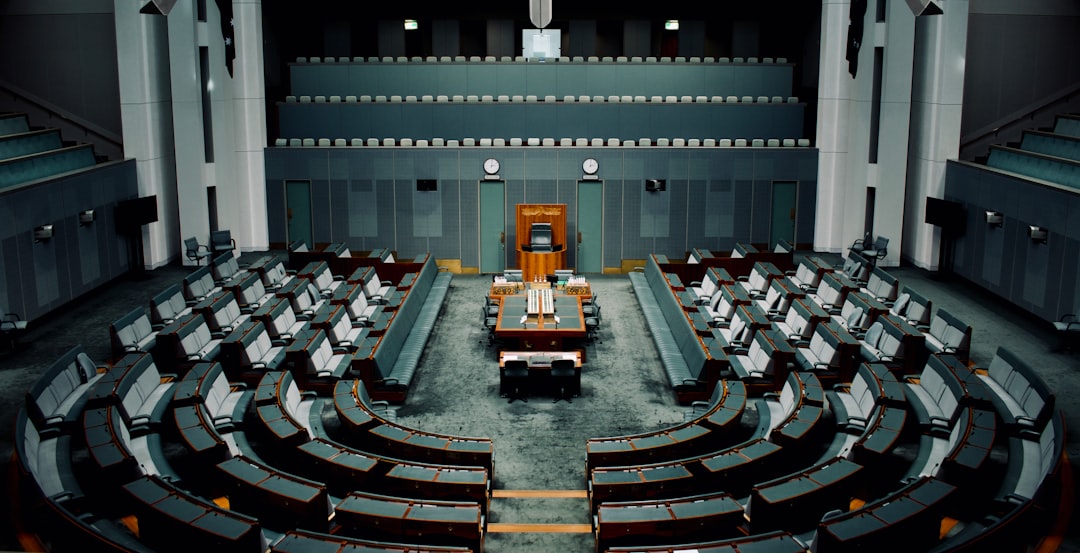Government vs. Parliament
What's the Difference?
Government and Parliament are two essential components of a democratic system. The government refers to the executive branch responsible for implementing laws and policies, while Parliament represents the legislative branch that creates and debates these laws. The government is formed by the political party or coalition that holds the majority in Parliament, and it is headed by the Prime Minister or President. On the other hand, Parliament consists of elected representatives who debate and vote on proposed legislation. While the government holds the power to make decisions and govern the country, Parliament acts as a check and balance, ensuring that the government's actions align with the interests and will of the people.
Comparison

| Attribute | Government | Parliament |
|---|---|---|
| Definition | The governing body of a nation, state, or community. | The legislative body of a nation, state, or community. |
| Composition | Includes executive, legislative, and judicial branches. | Comprised of elected representatives. |
| Role | Responsible for making and enforcing laws, managing public affairs, and providing governance. | Responsible for debating, amending, and passing laws. |
| Leadership | Headed by a president, prime minister, or monarch. | Headed by a speaker or president. |
| Decision-making | Decisions are made collectively by the government. | Decisions are made through debates and voting by parliament members. |
| Accountability | Accountable to the people through elections and public opinion. | Accountable to the people through elections and public opinion. |
| Term | Can have fixed terms or be subject to elections. | Can have fixed terms or be subject to elections. |
| Functions | Executive functions, policy-making, law enforcement, diplomacy, etc. | Legislative functions, debating bills, representing constituents, etc. |

Further Detail
Introduction
Government and Parliament are two essential components of a democratic system. While they work closely together, they have distinct attributes that shape their roles and functions. In this article, we will explore the characteristics of both Government and Parliament, highlighting their similarities and differences.
Government
The Government is the executive branch of a country's political system. It is responsible for implementing and enforcing laws, managing public affairs, and making decisions on behalf of the nation. The Government is typically led by a head of state or head of government, such as a President or Prime Minister.
One of the key attributes of the Government is its executive power. It has the authority to execute and enforce laws, maintain order, and manage the day-to-day affairs of the country. The Government is also responsible for formulating and implementing policies that address various issues, such as the economy, healthcare, education, and national security.
Another important attribute of the Government is its accountability. As the executive branch, it is accountable to the people and must act in their best interests. The Government is elected or appointed through democratic processes, ensuring that it represents the will of the people. It is also accountable to the Parliament, which plays a crucial role in overseeing the Government's actions.
The Government has the power to propose and introduce legislation. It drafts bills and presents them to the Parliament for debate and approval. The Government's ability to initiate legislation is a significant attribute that allows it to shape the direction and priorities of the country.
Furthermore, the Government is responsible for managing the country's finances. It formulates and presents the national budget, allocating resources to different sectors and programs. The Government's control over the budget is a crucial attribute that enables it to implement its policies and fulfill its obligations.
Parliament
Parliament is the legislative branch of a democratic system. It is composed of elected representatives who are responsible for making laws, scrutinizing the Government's actions, and representing the interests of the people. The Parliament acts as a check on the Government's power and ensures that it remains accountable.
One of the primary attributes of Parliament is its law-making authority. It has the power to debate, amend, and pass legislation. Parliamentarians represent their constituents and bring forward their concerns and interests during the legislative process. Through this attribute, Parliament plays a vital role in shaping the legal framework of the country.
Parliament also has the responsibility of overseeing the Government's actions. It holds the Government accountable for its decisions and policies. Parliamentarians have the authority to question the Government, demand explanations, and conduct inquiries. This attribute ensures transparency and prevents the abuse of power.
Another important attribute of Parliament is its role in representing the people. Members of Parliament (MPs) are elected by the citizens and act as their voice in the legislative process. They raise issues, advocate for their constituents, and participate in debates to ensure that diverse perspectives are considered.
Parliament has the power to approve or reject the Government's proposed legislation. Through this attribute, it acts as a check on the Government's power and ensures that laws are thoroughly examined and debated before implementation. Parliamentarians have the opportunity to propose amendments and shape the final outcome of legislation.
Similarities and Interactions
While Government and Parliament have distinct attributes, they also share commonalities and interact closely within a democratic system. Both branches are essential for the functioning of a democratic government and rely on each other to fulfill their roles.
One significant similarity is the need for cooperation and collaboration. The Government and Parliament must work together to achieve their respective objectives. The Government relies on the support of Parliament to pass legislation and implement policies effectively. Similarly, Parliament relies on the Government to provide information, resources, and expertise to carry out its legislative functions.
Both Government and Parliament are accountable to the people. They are elected or appointed through democratic processes and must act in the best interests of the citizens. The Government is accountable to the people for its actions and policies, while Parliament is accountable for representing the people's concerns and ensuring the Government remains transparent and responsible.
Furthermore, the Government and Parliament interact through the legislative process. The Government proposes bills, and Parliament debates and scrutinizes them. Parliamentarians have the opportunity to propose amendments, seek clarifications, and influence the final outcome of legislation. This interaction ensures that laws are thoroughly examined and reflect the diverse perspectives of the citizens.
Additionally, both Government and Parliament play a role in shaping public policy. While the Government formulates policies, Parliament provides input and oversight. Parliamentarians can propose alternative policies, suggest modifications, and hold the Government accountable for the outcomes of its policies. This collaboration ensures that policies are well-informed, inclusive, and responsive to the needs of the people.
Conclusion
In conclusion, Government and Parliament are integral components of a democratic system, each with its own attributes and roles. The Government, as the executive branch, has executive power, accountability, legislative initiative, and financial management responsibilities. Parliament, as the legislative branch, has law-making authority, oversight functions, representation of the people, and the power to approve or reject legislation.
While they have distinct attributes, Government and Parliament also share similarities and interact closely. Cooperation, accountability, legislative processes, and policy shaping are areas where they collaborate to ensure the effective functioning of a democratic government. Understanding the attributes and interactions of Government and Parliament is crucial for citizens to engage in the democratic process and hold their representatives accountable.
Comparisons may contain inaccurate information about people, places, or facts. Please report any issues.